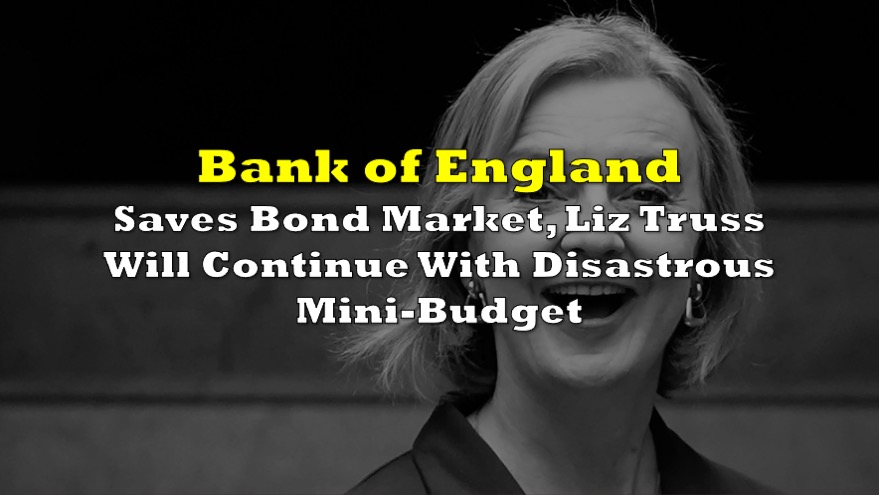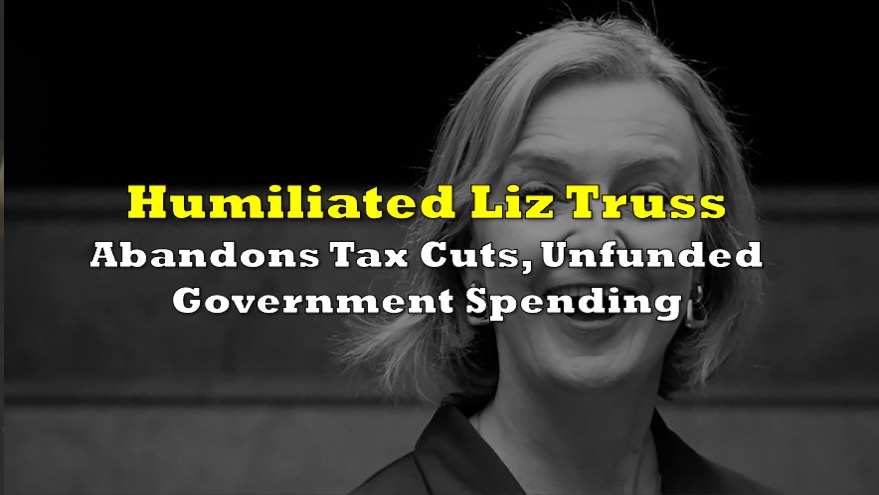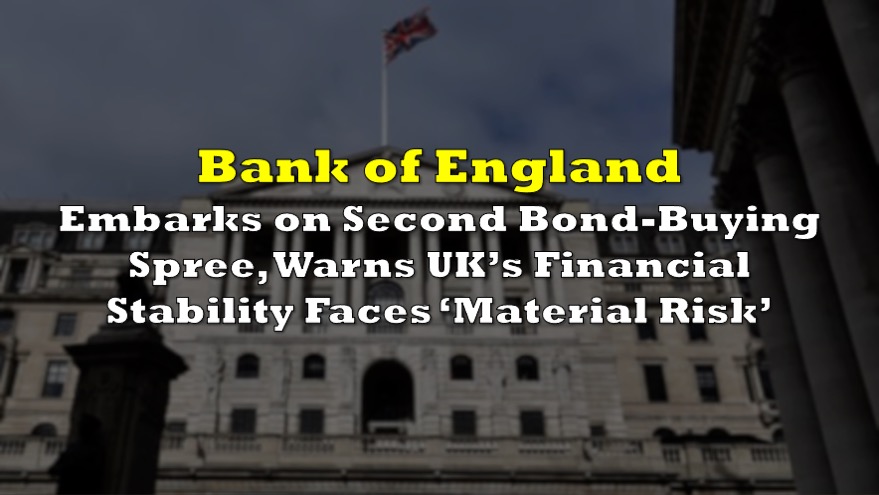The British pound was sent into a free-fall over the weekend, plummeting to a record-low of 1.069 against the US dollar come Monday. The sharp drop came after UK finance minister Kwasi Kwarteng on Friday announced a series of tax cuts and the largest increase in borrowing in over 50 years, which the markets perceived as a threat to the federal government’s financial credibility, particularly on the heels of a Bank of England rate hike just a day before.

Kwarteng’s mini-budget unveiling sparked concern among central bank officials, who tabled a meeting on Monday to determine whether an emergency rate hike would be appropriate in wake of the UK’s quickly-unravelling currency crisis. Ultimately, the Bank of England refrained from raising borrowing costs from the current 2.25%, which just went up from 1.75% following last week’s meeting. Instead, bank officials said they will wait until November before adjusting fiscal policy.
“The Bank is monitoring developments in financial markets very closely in light of the significant repricing of financial assets,” said Bank of England Governor Andrew Bailey. “The MPC will not hesitate to change interest rates by as much as needed to return inflation to the 2% target sustainably in the medium term, in line with its remit.” The central bank’s apparent inaction on the FX crisis sent the pound even further into free-fall for the remainder of the day, forcing some mortgage lenders, including Halifax— the largest home loan issuer in the UK— to withdraw their products from the market.
Full statement from Andrew Bailey, Governor of the Bank of England: https://t.co/GzbJQ6MaNK pic.twitter.com/I3gPAow1NW
— Bank of England (@bankofengland) September 26, 2022
Kwarteng’s fiscal plan— which he says would help boost UK’s economy, is seen as ill-fated by economists, who warn additional government spending will only send inflation soaring even higher, and run counterproductive to the central bank’s goal of bringing price growth to the 2% target range. The consequent weakened pound will raise the cost of imports, which in turn will increase medium-run price pressures. “Sterling is in the firing line as traders are turning their backs on all things British. There is a creeping feeling the extra government borrowing that is in the pipeline will severely weigh on the UK economy,” said Equiti Capital David Madden, as cited by The Guardian.
Information for this briefing was found via Reuters and The Guardian. The author has no securities or affiliations related to this organization. Not a recommendation to buy or sell. Always do additional research and consult a professional before purchasing a security. The author holds no licenses.









